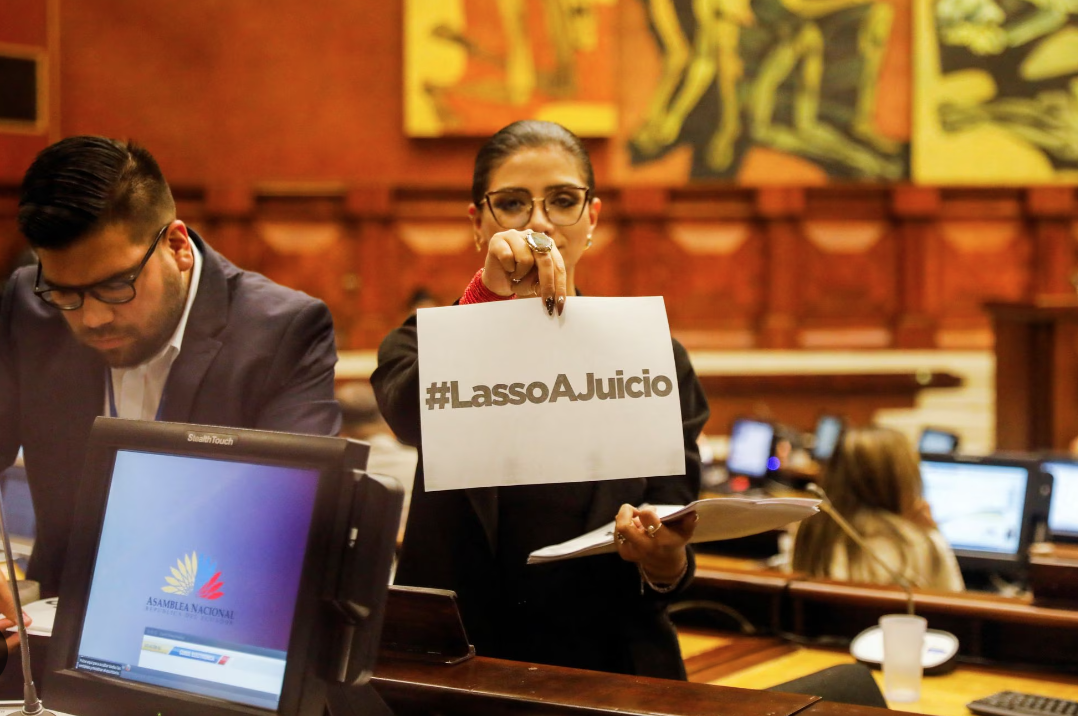The Constitutional Court of Ecuador, the highest instance of constitutional control, has just admitted the impeachment procedure of the President of the Republic, Guillermo Lasso. The questions on this decision are a matter of elucidation and political discussion among citizens and experts in constitutional matters. Has the Court conducted itself as an instance that is strictly governed by the letter of the law and the Constitution or has its operation been biased from a political point of view?
Paradoxically, it could be affirmed that, although the Court allows submitting the president to impeachment through its ruling, the nature of such a decision seems to be the best endorsement for the Government itself. Rather than responding to pressure from the streets or from the Government, it is likely that the Court has actively considered the seriousness of the political crisis and that it stems from the social crisis the country is going through. A dismissal of the impeachment request would have been the best incentive to make the collusion between the parliamentary opposition and the social movement to be settled with the consequences of destabilization and aggravation of the crisis.
The Court rejects two of the three accusations as “not well founded”: those referring to the crime of extortion, and leaves open the possibility of inquiring about the crime of embezzlement, knowing that the contract, allegedly fraudulent on which the accusation is based, was stipulated in 2018, two years before Lasso was settled in Carondelet.
What could be understood as a decision that affects the Government, ends up favoring it. The option of cross-death estimated as a possible presidential response to the pressure from the Assembly seems to have been discarded at least for now. Lasso has decided to submit himself to the judgment of the Assembly, a path that could be more bearable for him, given the condition of the Assembly in which the ghost of the “moving majorities” continues to haunt its corridors. Furthermore, this allows him to avoid “heating up the streets”, an area in which the President would possibly lose.
It is possible to foresee two situations or consequences in the immediate future: the president is dismissed by the Assembly, in which case a constitutional succession would take place through the assumption of office by the vice-president; or the president is successful and, in this case, the parliamentary opposition would suffer a serious defeat with the weakening of those promoting the impeachment (the “Union for Hope” and the “Social Christian Party”), which would see their replacement project for the elections of 2025 more problematic.
What is at stake in the possible outcome of the crisis is the capacity of the country’s institutions to contain the forces and their tensions. So far, it seems that impeachment is a resource established by the Constitution, and it is a sign of the necessary control that must characterize the legislature. On the other hand, the Court, by accepting this possibility, appeases political tensions and avoids disruptive solutions. At the same time, it gives the president the possibility to defend himself using argumentation as a weapon, avoiding results that could aggravate confrontation.
Let us return to our initial question: is the Court immune to political pressures or has it been influenced in its decision? It could be said that the Court has not limited itself to being a mere procedural filter that judges on the respect for legal procedures but has assumed political considerations related to a reinforced interpretation of its mission as an instance that watches over constitutionality, stability, and the safeguarding of the rule of law.
The Court’s decision questions a substantive matter in which the complex interweaving between legality and constitutionality, between politics and legality, is elucidated. It seems that the Court has elucidated politically in this case, without, however, this operation would have meant any kind of partisan politicization. Is this a sign of institutional maturity and are the actors willing to rigorously respect the consequences of its effective concretion in the management of the crisis? Does the institutionalism in Ecuador have the capacity to face these challenges?
The answer to these questions will be elucidated in the coming weeks. For now, the Government has two paths left: to convince the Assembly members and reduce the majority that could censure it, or, in the worst-case scenario, to use the resource of cross-death if the outcome of the trial takes place in moments of severe national commotion, which would fulfill one of the requirements established by the Constitution to put it into practice.
*Translated from Spanish by Janaína Ruviaro da Silva













